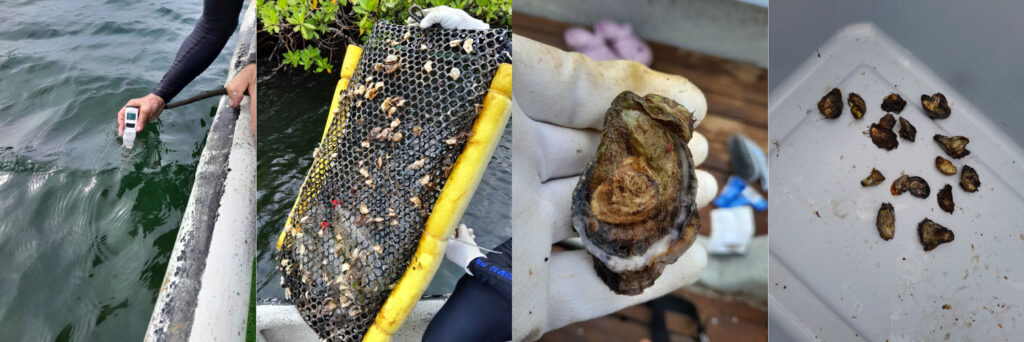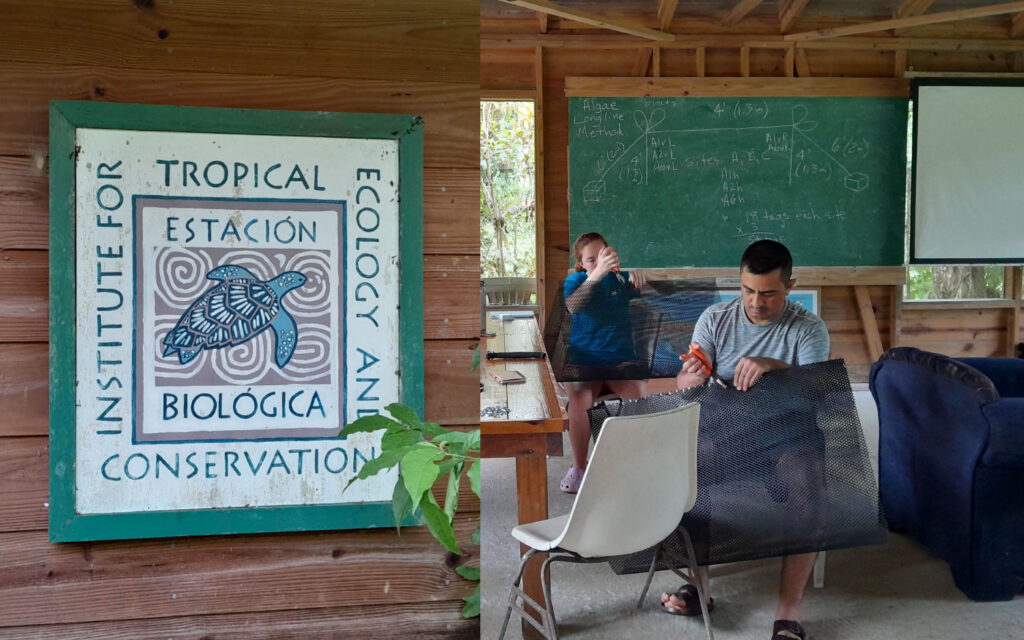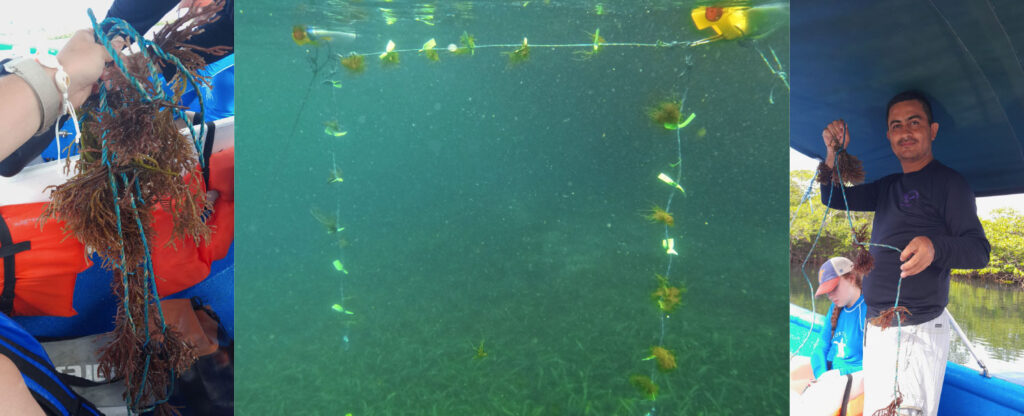Currently, population growth in coastal areas has led to an increase in fishing activity in different parts of the world. Naturally, higher populations demand greater economic outputs as the need for food and household income also grows. Coastal communities such as those in Honduras’ Tela Bay are experiencing significantly greater pressures on fishing resources and, in effect, on coral reefs.
Our team in Honduras has spent the past few years diligently crafting the design and implementation of innovative and sustainable economic alternatives to fishing in water that are critical coral reef areas. Through this program we are giving families financial independence while reducing overfishing pressures. One of these alternatives is aquaponics with native species, which leverages the power of mariculture.
What is Mariculture? A Lifeline for Coastal Communities and Coral Reefs
Mariculture is essentially underwater agriculture – it’s aquaculture. But, what does that actually look like?

While critical marine organisms like oysters, algae and seaweed can be farmed and raised out of the ocean, mariculture is the cultivation of these marine organisms using their natural habitats. By leveraging the power of the ocean, mariculture creates a lifeline for coastal communities and the fragile marine environments they depend on. The aquaponic systems that CORAL is installing in Tela Bay, Honduras, capitalizes on the power of mariculture for the sake of rebounding overfished areas in order to protect coral reefs.
Science in Action
The benefits of mariculture are vast and vital. This approach to offset the consequences of overfishing also helps mitigate nutrient pollution, provides essential habitats for marine life, supports fish stocks, reduces local climate change impacts, and generates income for communities—all while preserving the environment. Mariculture offers a sustainable path forward for coastal regions worldwide.
In July, CORAL’s own Julio San Martin Chicas – our Program Coordinator for the North Coast of Honduras – participated in a hands-on mariculture course provided by Dr. Lonnie Kaczmarsky at the Institute for Tropical Ecology and Conservation in Bocas del Toro, Panama. This course expanded Julio’s knowledge on the subject matter as well as his approach to strengthening CORAL’s aquaponics initiative. His participation in the course also starts to fill an opportunity gap not only for CORAL and our partners, but also for Honduras, as Julio is the first Honduran to participate in this program. We hope that by attending and implementing the lessons that he learned in Panama in Honduras, Julio will be the first of many Hondurans to implement this approach alongside our community partners.

ITEC’s program teaches conservationists and citizen scientists how mariculture has the power to sustainably alleviate pressures that coral reefs face, especially in the ever-changing environmental conditions spurred on by climate change. Julio is all about science in action and science for action.

Sustainable Alternatives for Coral Conservation
Utilizing mariculture as an approach to saving coral reefs isn’t just about growing our knowledge base; it’s about creating a ripple effect of positive change. By empowering individuals like Julio and organizations like CORAL with the right skills and resources, mariculture sets the stage for transformative progress in coral conservation.
CORAL is dedicated to promoting sustainable fisheries as a way to bolster the resilience of coastal communities and coral reefs. Mariculture aligns with this mission, offering a way to promote economic stability for coastal communities in Honduras while also preserving the threatened coral reef ecosystems that support them. Now, thanks to Julio and this course, we are one step closer to our goal of protecting and restoring coral reefs in the North Coast of Honduras and beyond.

